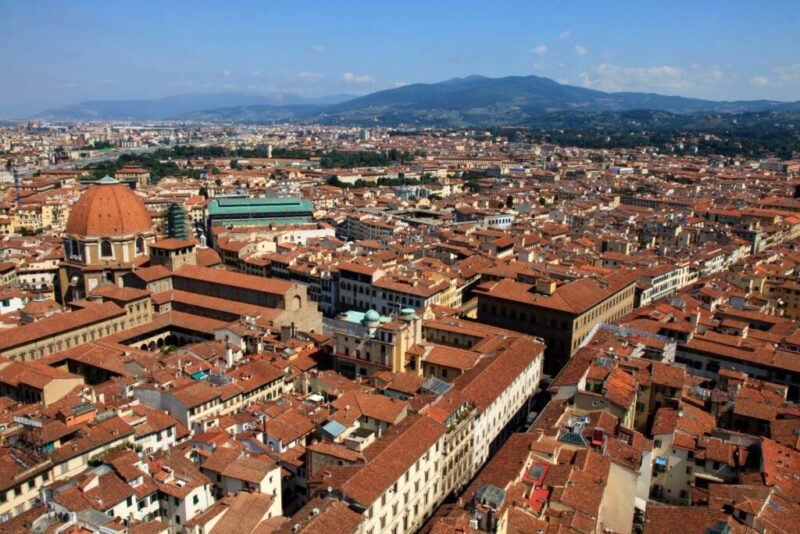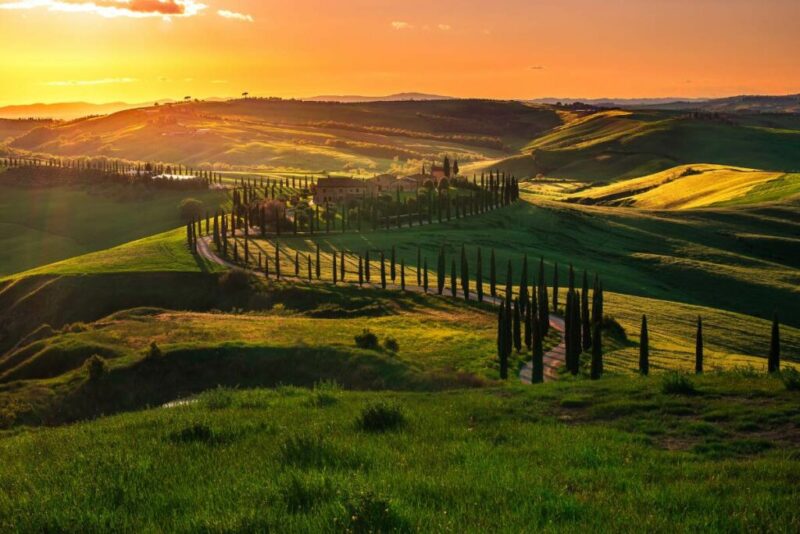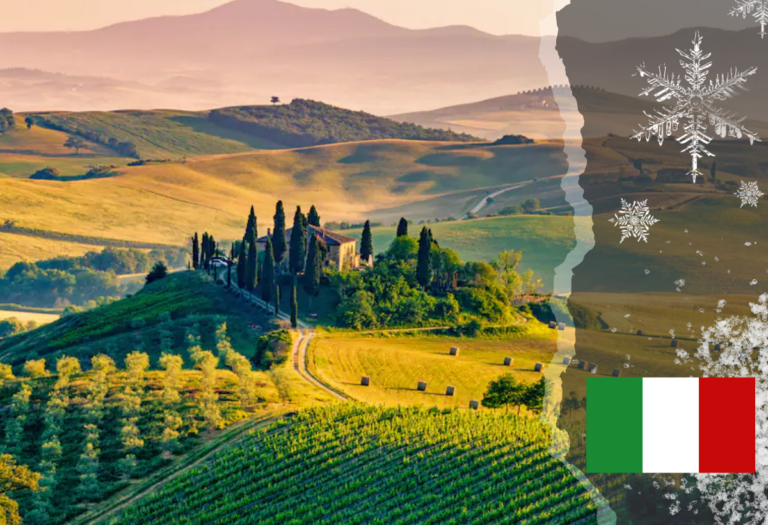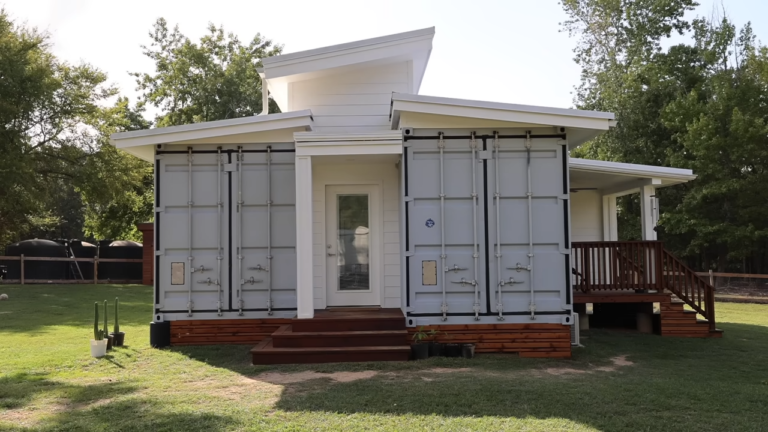Tuscany is a region in central Italy known for its rolling hills, medieval castles, and historic cities. But when it comes to weather, many people wonder: “Does it snow in Tuscany?” In this post, we’ll delve into the climate of the region and explore the likelihood of snowfall in Tuscany.
So, if you’re planning a trip or just curious about the weather in this beautiful part of Italy, read on!
Does It Snow in Tuscany, Italy?

Yes, it does snow in Tuscany. Although snowfall in Tuscany is rare, it is not uncommon, especially in the mountainous areas of the region. Coastal cities like Florence and Pisa typically receive little to no snow, while areas such as Abetone and Mount Amiata can experience snowfall in the winter months.
Overall, the region has a Mediterranean climate with mild, wet winters and warm, dry summers.
How Often Does It Snow In Tuscany, Italy?
Snowfall in Tuscany is infrequent but not a rare occurrence. The frequency of snowfall varies depending on the location within the region. Coastal cities such as Florence and Pisa generally experience little to no snow, while mountainous areas like Abetone and Mount Amiata can receive snowfall during the winter months.
Tuscany has a Mediterranean climate characterized by mild, wet winters and warm, dry summers, which affects the likelihood of snow.
To summarize, snow in Tuscany is not a frequent occurrence but can still happen during the winter months, especially in mountainous regions.
When Does it Snow In Tuscany, Italy?
Snow in Tuscany typically occurs during the winter months, from December to February. The frequency and amount of snowfall vary depending on the location within the region.
Coastal cities such as Florence and Pisa usually receive little snow, while mountainous areas like Abetone and Mount Amiata can experience more significant snowfall.
Tuscany’s Mediterranean climate, with mild, wet winters and warm, dry summers, plays a role in determining when snowfall occurs in the region.
In summary, the winter months are the most likely time for the snow to fall in Tuscany, particularly in the mountainous areas.
The Weather in Tuscany, Italy

Tuscany is located in central Italy and has a Mediterranean climate characterized by mild, wet winters and warm, dry summers.
During the winter, temperatures typically range from 5°C to 12°C (41°F to 54°F) in the coastal cities, while mountainous areas can experience cooler temperatures and higher chances of snowfall.
Summer temperatures can reach up to 30°C (86°F) and are generally dry with occasional thunderstorms. The region is known for its picturesque rolling hills and historic cities, making it a popular tourist destination all year round.
In summary, Tuscany experiences a Mediterranean climate with mild, wet winters and warm, dry summers.
Some Popular Things to Do in Tuscany, During Winter
Here are a few things to do in Tuscany during the winter months:
- Visit historic cities: Explore cities like Florence, Pisa, and Siena to see their famous landmarks, museums, and historic architecture.
- Warm up in thermal baths: Take a dip in one of Tuscany’s many thermal baths to warm up and relax.
- Enjoy local cuisine: Warm up with hearty and flavorful Tuscan dishes such as ribollita soup and wild boar stew.
- Go skiing: Head to the mountainous areas for skiing, snowboarding, and other winter sports.
- Attend a holiday market: Visit one of Tuscany’s holiday markets to buy gifts and enjoy festive activities.
- Take a wine tour: Winter is a great time to taste Tuscany’s famous red wines, such as Chianti, in a cozy setting.
- Visit a museum: Visit one of Tuscany’s many museums, such as the Uffizi Gallery in Florence, to see masterpieces by famous artists.
Overall, winter in Tuscany offers plenty of opportunities to experience the region’s rich history, culture, and cuisine.
Conclusion: Does It Snow In Tuscany, Italy?
In conclusion, Tuscany is a region of central Italy known for its rolling hills, historic cities, and Mediterranean climate.
While snowfall is not a frequent occurrence in coastal areas like Florence and Pisa, the mountainous regions of Tuscany can experience snow during the winter months.
Despite the lack of snow in some areas, Tuscany remains a popular destination year-round, offering plenty of opportunities to experience its rich history, culture, and cuisine, especially during the winter months.
So, whether you’re planning a trip or just curious about the weather, Tuscany is definitely worth exploring!
Related Articles
- Does It Snow In Italy?
- Does It Snow In Rome?
- Does It Snow In Naples, Italy?
- Does It Snow in Venice?
- Does It Snow In Switzerland?
- Does It Snow In France?
FAQs: About Snow in Williams, Arizona
Is Snow Common in Tuscany During the Winter Months?
What Areas in Tuscany Are Most Likely to Receive Snow?
Can You Ski in Tuscany During the Winter?
What Is the Typical Temperature in Tuscany During the Winter?
What Activities Can You Do in Tuscany During the Winter?
Is Tuscany Still a Popular Tourist Destination During the Winter Months?
Related Posts:
- Does It Snow In Brazil? Soccer in Snow Boots?
- Does It Snow In San Antonio? Snow-Covered River Walk?
- Does It Snow In Philadelphia? From Liberty Bells to…
- Does It Snow In Massachusetts? Harvard Yard Under Snow
- Does It Snow In Croatia? Snow-Kissed Adriatic?
- Does It Snow In Salem, Oregon? From Bewitching Rain…







